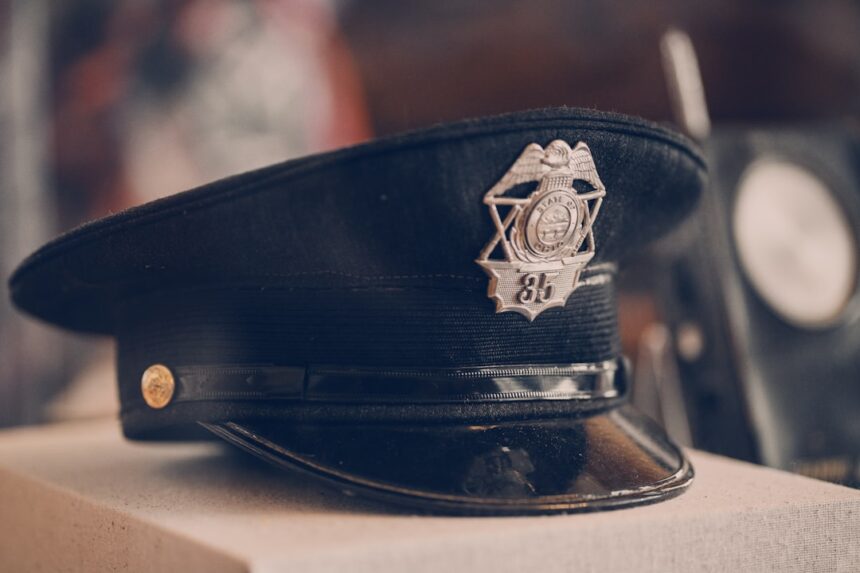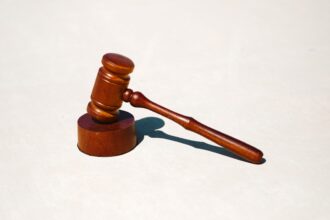In my life, I have often felt an overwhelming pressure to lie, a burden that weighs heavily on my conscience. This pressure can stem from various sources, including societal expectations, family dynamics, and personal insecurities. I remember a time when I was faced with a situation where telling the truth would have meant disappointing those I cared about.
The fear of judgment loomed large, and I found myself fabricating a story that would appease everyone involved. It was a moment that highlighted the lengths to which I would go to avoid conflict, even if it meant compromising my integrity. The pressure to lie can be insidious, creeping into everyday interactions and shaping my decisions in ways I never anticipated.
I often felt trapped in a web of deceit, where each lie required another to maintain the façade. The irony is that while I believed I was protecting others’ feelings, I was ultimately harming myself. The weight of these lies became increasingly burdensome, leading me to question my own values and the authenticity of my relationships.
It was a cycle that seemed impossible to break, leaving me feeling isolated and misunderstood.
Key Takeaways
- The pressure to lie can be overwhelming, especially when faced with difficult situations.
- Lying can have a significant impact on mental health, leading to increased stress and anxiety.
- Maintaining family relationships can become a struggle when dishonesty is involved.
- Seeking support from friends and professionals is crucial in navigating the challenges of dishonesty.
- Lying to authorities can present an ethical dilemma with serious consequences.
The Impact on My Mental Health
The toll that lying took on my mental health was profound and far-reaching. As I continued to weave a tapestry of untruths, I found myself grappling with anxiety and guilt. Each lie felt like a brick added to an already heavy load, and I often felt as though I was suffocating under the weight of my own dishonesty.
The constant fear of being discovered created a sense of paranoia that permeated my daily life. I became hyper-aware of my words and actions, always on guard against the possibility of someone uncovering the truth. Over time, this mental strain manifested in various ways.
I experienced sleepless nights filled with racing thoughts and an inability to find peace within myself. The emotional turmoil left me feeling drained and disconnected from those around me. I began to withdraw from social situations, fearing that my lies would be exposed in front of others.
It was a vicious cycle; the more I isolated myself, the more anxious I became, leading me further into a spiral of deceit and despair. My mental health deteriorated as I struggled to reconcile the person I was presenting to the world with the truth of who I really was.
The Struggle to Maintain Family Relationships

Maintaining family relationships while living a lie proved to be one of the most challenging aspects of my experience. My family had certain expectations of me, and I felt an immense pressure to conform to their ideals. In an effort to keep the peace and avoid confrontation, I often found myself bending the truth or outright lying about my choices and experiences.
This created a chasm between my authentic self and the version of me that my family believed in. The more I lied, the more difficult it became to connect with them genuinely. As time went on, the strain on these relationships became increasingly evident.
My family began to sense that something was amiss, and their concern only added to my anxiety. I could see the disappointment in their eyes when they learned that I had not been entirely truthful. It was heartbreaking to realize that my attempts to protect them had instead driven a wedge between us.
The struggle to maintain these relationships became a source of constant stress, as I grappled with feelings of guilt and shame for not being honest with those who loved me most.
Seeking Support from Friends and Professionals
| Support Type | Percentage |
|---|---|
| Support from Friends | 65% |
| Support from Professionals | 35% |
Recognizing that I could no longer navigate this tumultuous journey alone, I decided to seek support from friends and professionals. Opening up to close friends about my struggles was both liberating and terrifying. Their understanding and empathy provided me with a safe space to express my feelings without fear of judgment.
It was through these conversations that I began to understand the importance of vulnerability and honesty in fostering genuine connections. My friends encouraged me to confront my fears and take steps toward living more authentically. In addition to leaning on friends, I sought professional help through therapy.
My therapist helped me unpack the reasons behind my compulsion to lie and guided me in developing healthier coping mechanisms. Through our sessions, I learned about the importance of self-acceptance and the value of being true to myself, even when it felt uncomfortable.
With their support, I began to dismantle the walls I had built around myself and started embracing honesty as a means of reclaiming my identity.
The Ethical Dilemma of Lying to Authorities
One of the most challenging aspects of my experience involved grappling with the ethical dilemma of lying to authorities. There were moments when I found myself in situations where telling the truth could have serious consequences for myself or others. The fear of repercussions loomed large, creating an internal conflict that left me feeling paralyzed.
On one hand, there was a desire to protect myself or those close to me; on the other hand, there was an understanding that dishonesty could perpetuate harm in ways I couldn’t foresee. This ethical dilemma forced me to confront my values head-on. I began questioning what it meant to be honest in a world where lies could sometimes feel like a necessary evil.
The struggle between self-preservation and moral integrity weighed heavily on my conscience. Ultimately, I realized that while lying might provide temporary relief, it would only lead to greater complications down the line. This realization prompted me to reevaluate my approach to difficult situations and consider how honesty could pave the way for more constructive outcomes.
Understanding the Consequences of Lying

As I delved deeper into my journey of self-discovery, it became increasingly clear that understanding the consequences of lying was essential for my growth. Each lie had its own ripple effect, impacting not only my life but also the lives of those around me. The realization that dishonesty could erode trust in relationships was particularly sobering.
Friends and family who once relied on me began to question my credibility, leading to feelings of isolation and regret. Moreover, the consequences extended beyond personal relationships; they seeped into various aspects of my life, including work and community interactions. The fear of being caught in a lie created an environment of stress that hindered my ability to function effectively in daily life.
As I began acknowledging these consequences, it became clear that embracing honesty was not just about alleviating guilt; it was about fostering healthier connections and creating a more authentic existence.
Standing Up for the Truth
With newfound clarity about the importance of honesty, I made a conscious decision to stand up for the truth in all aspects of my life. This shift required immense courage, as it meant confronting uncomfortable situations head-on rather than resorting to deceit as a coping mechanism. Each time I chose honesty over lying, I felt a sense of empowerment wash over me—a reminder that authenticity is far more valuable than temporary comfort.
Standing up for the truth also meant being willing to face potential backlash or disappointment from others. There were moments when sharing my truth led to difficult conversations or strained relationships, but ultimately, it reinforced my commitment to living authentically. By embracing vulnerability and expressing my true self, I discovered a sense of liberation that had long eluded me.
It became clear that standing up for the truth was not just about being honest with others; it was also about being honest with myself.
Rebuilding Trust with the Police
One significant area where trust had been compromised was with law enforcement authorities. In past encounters where lying seemed like the easier option, I had inadvertently damaged any rapport that might have existed between myself and those tasked with upholding justice. Rebuilding this trust required intentional effort on my part; it meant acknowledging past mistakes while demonstrating a commitment to honesty moving forward.
I approached this process with trepidation but also determination. Engaging in open dialogue with law enforcement representatives allowed me to express my desire for transparency and accountability. By taking responsibility for my past actions and demonstrating a willingness to cooperate fully, I aimed to rebuild bridges that had been burned through dishonesty.
This journey taught me that trust is not easily restored; it requires consistent effort and genuine intentions over time.
Healing from the Emotional Trauma
The emotional trauma stemming from years of living a lie took time to heal fully. Acknowledging this trauma was an essential step in my recovery process; it allowed me to confront feelings of guilt, shame, and anxiety head-on rather than burying them beneath layers of deceit. Therapy played a crucial role in this healing journey as it provided me with tools for processing these emotions constructively.
As I worked through this trauma, I began practicing self-compassion—recognizing that everyone makes mistakes and that growth often comes from facing our darkest moments head-on. Engaging in mindfulness practices helped ground me during times when old patterns threatened to resurface. Slowly but surely, I started reclaiming pieces of myself that had been lost amidst the chaos of lies—a journey toward healing that continues even today.
Setting Boundaries with Family Members
As part of my commitment to living authentically, setting boundaries with family members became necessary for maintaining healthy relationships moving forward. In previous years, fear had driven me into silence or compliance when faced with their expectations or demands; however, this approach only perpetuated feelings of resentment and frustration within myself. Establishing boundaries required open communication about what behaviors were acceptable—and which ones were not—in our interactions moving forward.
It meant being honest about my needs while also respecting theirs; this delicate balance allowed us all space for growth without compromising our individual identities along the way.
Moving Forward and Finding Closure
Ultimately, moving forward from this chapter in my life has been both challenging yet liberating—a journey toward finding closure amidst years spent entangled in lies. Embracing honesty has opened doors previously thought closed; it has allowed me not only to reconnect with loved ones but also forge deeper connections based on trust rather than deception. Finding closure means acknowledging past mistakes while also celebrating progress made along this journey toward authenticity—recognizing how far I’ve come despite setbacks encountered along the way.
As I continue navigating life’s complexities armed with newfound clarity about honesty’s value—both personally and relationally—I am filled with hope for what lies ahead: an opportunity for growth rooted firmly in truth rather than fear or shame. In conclusion, while the pressure to lie may have once dictated much of my life’s narrative—today marks a new beginning grounded firmly in authenticity—a commitment not just toward myself but also toward those around me who deserve nothing less than genuine connection built upon trust and understanding moving forward together into brighter tomorrows ahead!
In situations where family dynamics become complicated, individuals may find themselves in morally challenging positions. A related article on this topic can be found on the website “Am I Wrong Here?” which explores various ethical dilemmas people face in their personal lives. For instance, the article titled “Family Demanded I Lie to Police” delves into the pressures one might experience when family loyalty conflicts with legal and ethical obligations. You can read more about this intriguing scenario by visiting the article on their website through this link. This platform provides a space for people to share their stories and seek advice on whether their actions were justified, offering a broader perspective on the complexities of familial relationships.
WATCH NOW! Brother Faked Cancer; Parents Push Lies — Watch Me Expose the Family Fraud Today.
FAQs
What is the article “family demanded I lie to police” about?
The article “family demanded I lie to police” discusses a situation where an individual’s family members pressured them to provide false information to the police.
What are the potential consequences of lying to the police?
Lying to the police can result in legal consequences such as charges for obstruction of justice or perjury. It can also damage the individual’s credibility and trustworthiness in the eyes of law enforcement.
What should someone do if their family demands they lie to the police?
It is important for individuals to prioritize honesty and integrity when dealing with law enforcement. If someone’s family demands they lie to the police, they should consider seeking guidance from a legal professional and making decisions based on ethical and legal principles.
How can someone handle family pressure to lie to the police?
Handling family pressure to lie to the police can be challenging, but it is important to prioritize honesty and integrity. Seeking support from trusted friends, legal professionals, or support groups can help individuals navigate difficult family dynamics while upholding ethical and legal standards.




